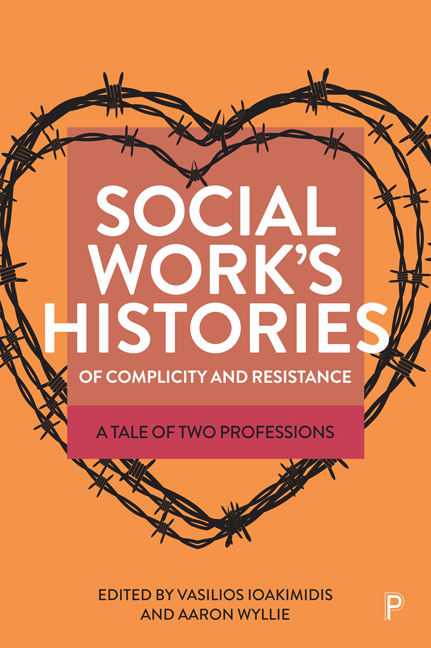Book contents
- Frontmatter
- Contents
- Notes on contributors
- Acknowledgements
- Preface
- Part I Making amends with the past
- Part II Legacies of colonialism and racism in social work
- Part III Social work’s contested ideologies
- Part IV Social work’s complicity with institutionalisation and detention
- Part V Survivor perspectives and contemporary reflections
- Index
17 - Adoption social work practice in Ireland: critical reflections on present-day injustices
Published online by Cambridge University Press: 20 January 2024
- Frontmatter
- Contents
- Notes on contributors
- Acknowledgements
- Preface
- Part I Making amends with the past
- Part II Legacies of colonialism and racism in social work
- Part III Social work’s contested ideologies
- Part IV Social work’s complicity with institutionalisation and detention
- Part V Survivor perspectives and contemporary reflections
- Index
Summary
Introduction
I am grateful to the editors for their kind invitation to contribute to this collection. This book is an important and timely intervention; it considers how social work practice has been complicit in historical injustices and examines instances where social workers have resisted human rights abuses in the past. Social work and the populations it serves can only benefit from a frank and honest engagement with its complex history. However, to do so successfully, the social work profession must also confront discriminatory practices in the present.
In this chapter I argue that in the adoption field in Ireland, oppressive social work practices are not a phenomenon that can be consigned to the past. Despite the profession's grounding in human rights and social justice principles, adoption social work practice often requires the execution of policies that are at odds with such values. So-called ‘historical’ injustices are perpetuated through the withholding of records from adopted people and the micro-management of those who wish to reunite with their families of origin. Conversely, it is noteworthy that social workers have been among the most vocal advocates for children's rights in intercountry adoption, often in the face of significant opposition (for example, O’Brien, 2009; Boland, 2014). Yet, social workers in the same field engage in practices that discriminate against adult adopted people. In this chapter I explore the possible reasons for this contradiction.
My work is grounded in three main perspectives, each of which informs this chapter. Firstly, I am an adopted person who grew up under Ireland's closed, secret adoption system. As a child, I had no contact with my mother or my family of origin. Although it is now almost 30 years since I first met my mother, I am still denied access to my full adoption file. In this chapter I share some of my personal experience with social work practice. It is the first time I have done so in a public forum; for several reasons (not least the intent behind this book), I believe that this is the right time and place to do so.
- Type
- Chapter
- Information
- Social Work's Histories of Complicity and ResistanceA Tale of Two Professions, pp. 261 - 277Publisher: Bristol University PressPrint publication year: 2023



